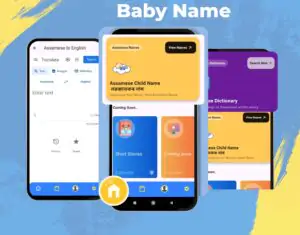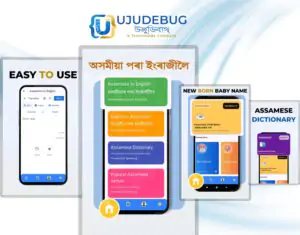A Heartfelt Guide to Expressing Affection
Have you ever found yourself wanting to express your deepest feelings in a language that truly resonates with someone? For those looking to connect with an Assamese speaker, knowing how to say I love you in Assamese can open doors to beautiful, heartfelt communication. More than just a phrase, it’s an embrace of culture and a bridge to deeper relationships.
This guide will walk you through the various ways to express affection in Assamese, from the classic declaration to nuanced expressions, ensuring you can convey your feelings with sincerity and respect.
Table of Contents
- The Classic: “Moi Tomak Bhal Pau” (মই তোমাক ভাল পাওঁ)
- Understanding the Nuances: Beyond the Basic Phrase
- Casual Affection: Showing Love to Friends and Family
- Adding Emotion: Intensifiers and Warmth
- Cultural Context: When and How to Express Love
- Pronunciation Tips for Authentic Expression
- Beyond Words: Actions Speak Louder
- Why Learning Assamese Phrases Matters
1. The Classic: “Moi Tomak Bhal Pau” (মই তোমাক ভাল পাওঁ)
The most direct and widely understood way to say I love you in Assamese is:
মই তোমাক ভাল পাওঁ Moi Tomak Bhal Pau
Let’s break down this powerful phrase:
- মই (Moi): I
- তোমাক (Tomak): You (objective case, singular and informal)
- ভাল (Bhal): Good/Well (in this context, it signifies love or affection)
- পাওঁ (Pau): Get/Receive (here, it combines with ‘bhal’ to mean ‘love’)
So, literally, it translates to “I receive good from you” or “I feel good for you,” but its essence is undeniably “I love you.” This is the go-to phrase for romantic relationships and profound declarations of affection.
2. Understanding the Nuances: Beyond the Basic Phrase
While “Moi Tomak Bhal Pau” is the standard, Assamese, like many rich languages, offers ways to tailor your expression based on formality and the depth of your relationship.

- For showing respect (to elders or in formal situations): If you’re speaking to someone older or in a more formal context, you might use: মই আপোনাক ভাল পাওঁ (Moi Aapunak Bhal Pau) Here, আপোনাক (Aapunak) is the formal and respectful way to say “you.” While “I love you” is typically used in intimate settings, understanding the formal “you” is crucial for broader communication in Assamese.
- More intense or passionate “I love you”: While there isn’t a single “stronger” direct translation that adds more passion to “Moi Tomak Bhal Pau,” the delivery and context are key. Sometimes, simply repeating it or adding a heartfelt tone can convey deeper emotion.
3. Casual Affection: Showing Love to Friends and Family
Love isn’t just romantic; it’s also about the warmth we feel for friends and family. While “Moi Tomak Bhal Pau” can be used, there are often softer, more general expressions of affection for non-romantic relationships.
- For friends (casual “like” or “fondness”): You might say “মই তোমাক ভাল পাওঁ” to a close friend, but it carries more of a “I’m fond of you” or “I like you a lot” meaning rather than romantic love. You could also simply express appreciation: তুমি মোৰ বৰ মৰমৰ (Tumi Mur Bor Moromor) – “You are very dear to me.” তুমি মোৰ আপোন (Tumi Mur Aaapun) – “You are my own/close person.”
- For family (parents, siblings): The phrase “Moi Tomak Bhal Pau” is commonly used among family members to express deep familial love. For example, a child might say it to their parents, or vice-versa. Another common expression of care is: মই তোমাৰ বহুত যত্ন লওঁ (Moi Tomar Bohut Jotno Lao) – “I care for you a lot.”
4. Adding Emotion with How to Say I Love You in Assamese: Intensifiers and Warmth
To make your “I love you” even more poignant, you can add adverbs or phrases that intensify the feeling.
- “Very much” / “A lot”: মই তোমাক বহুত ভাল পাওঁ (Moi Tomak Bohut Bhal Pau) – “I love you very much.” Bohut means “very” or “a lot.”
- “More than anything”: While not a direct translation, expressing this sentiment adds depth: তুমি মোৰ সকলো (Tumi Mur Sokoloo) – “You are my everything.” (This implies profound love).
5. Cultural Context: When and How to Express Love
In Assamese culture, as in many traditional societies, public displays of affection might be more subtle than in some Western cultures. While younger generations are more open, expressions of love are often deeply felt and shown through actions and gestures as much as words.
- Sincerity is Key: Regardless of the phrase you use, ensure your sincerity comes through.
- Actions Over Words: Often, thoughtful gestures, support during difficult times, and consistent care speak volumes.
- Gradual Approach: If you are building a new relationship, a gradual approach to expressing deep feelings might be more appreciated.
For those interested in delving deeper into the Assamese language and its translation, you might find our guide on how to translate Assamese to English very helpful.
6. Pronunciation Tips for Authentic Expression
Proper pronunciation is vital for your message to be understood and felt.
- Moi (মই): Sounds like “moy”
- Tomak (তোমাক): Sounds like “toh-mak” (the ‘o’ is short, like in “cot”)
- Bhal (ভাল): Sounds like “bhaal” (the ‘a’ is long, like in “father”)
- Pau (পাওঁ): Sounds like “pa-o” (the ‘o’ is a nasalized sound, a bit like the “ong” in “song” but softer, ending with a slight ‘w’ sound)
Practice How to Say I Love You in Assamese full phrase slowly at first, then try to increase your speed while maintaining clarity. Listening to native speakers (perhaps through online videos or language apps) can be incredibly beneficial.
7. Beyond Words: Actions Speak Louder
Remember, “I love u” is just one part of the equation. True affection is conveyed through consistent actions:
- Active Listening: Paying attention to their thoughts and feelings.
- Support: Being there for them in good times and bad.
- Respect: Valuing their opinions and individuality.
- Kindness: Small gestures of care and consideration.
- Quality Time: Spending meaningful moments together.
These actions, combined with your heartfelt words, create a powerful expression of love that transcends language barriers.
Formal vs. Informal: Addressing Elders and Superiors
Assamese, like many other languages, has different levels of formality. When addressing someone older than you, in a position of authority, or someone you wish to show significant respect to, you would use a more formal pronoun for “you.”
Instead of “তোমাক (Tomak),” you would use:
- আপোনাক (Apunak): This is the respectful and formal “you.”
So, if you wanted to express love or deep respect to an elder (though direct romantic declarations to elders are generally not customary and context is key), you might say:
মই আপোনাক ভাল পাওঁ। (Moi Apunak Bhal Pau.)
However, for romantic declarations, “Moi Tomak Bhal Pau” is the standard and most appropriate phrase. The formal “Apunak” is generally not used in romantic contexts.
While “Moi Tomak Bhal Pau” is the core, here are some other phrases that convey different shades of affection:
- তুমি মোৰ মৰম (Tumi Mor Morom): You are my love/affection. (A very sweet and endearing way to refer to someone you love.)
- তুমি মোৰ প্ৰাণ (Tumi Mor Pran): You are my life/soul. (A deeply emotional expression.)
- তোমাক বৰ মৰম কৰোঁ (Tomak Bor Morom Koru): I show you a lot of affection. (More about the act of showing love, often used for children or close family.)
It’s important to remember that these are not direct replacements for “I love you” but rather complementary phrases that express deep fondness and connection.
In Assamese culture, expressions of love can sometimes be more understated and demonstrated through actions rather than overt declarations. Gestures of care, respect, and loyalty often speak volumes. While younger generations are more open to direct verbal expressions of love, understanding the cultural nuances can enhance your connection.
Showing respect to their family, participating in their cultural traditions, and being supportive are all ways to demonstrate your affection that resonate deeply within the culture. For more on navigating language and culture, you might find this article on How to Translate Assamese to English helpful.
Practice Makes Perfect
Don’t be shy to practice saying “Moi Tomak Bhal Pau” to learn How to Say I Love You in Assamese. Listen to native speakers if you can, or use online resources to get the pronunciation right. The effort itself will be appreciated. Remember, authenticity and sincerity are key.
- Pronunciation Tip: The “Bhal” in “Bhal Pau” is pronounced similar to the English “bha” in “bhakti” with a soft “l” sound. “Pau” rhymes with “cow.”
Why Learning Assamese Phrases Matters
Learning how to say I love you in Assamese isn’t just about uttering a phrase; it’s about connecting with a culture, showing respect for a language, and making a profound personal connection. Whether for a romantic partner, a close friend, or a family member, this simple phrase can bridge gaps and deepen bonds, proving that love truly is a universal language, best expressed in words they understand.
- Showing respect: It demonstrates your effort to connect with someone on a deeper, more personal level by speaking their language.
- Building stronger bonds: It can create a powerful emotional resonance and make your declaration more meaningful.
- Cultural immersion: It’s a stepping stone to understanding and appreciating Assamese culture.
- Making a lasting impression: It’s a memorable way to express your feelings that will undoubtedly be cherished.
So go ahead, take the leap, and express your affection in the beautiful language of Assam!













 [/one_third][two_third]With a team of skilled software Developers, Ujudebug is the best IT Solution Company in Assam. Fully Customized Software Development services with multiple platforms. Our award winning team will we provide the best experience to customers at an affordable price.
[/one_third][two_third]With a team of skilled software Developers, Ujudebug is the best IT Solution Company in Assam. Fully Customized Software Development services with multiple platforms. Our award winning team will we provide the best experience to customers at an affordable price.